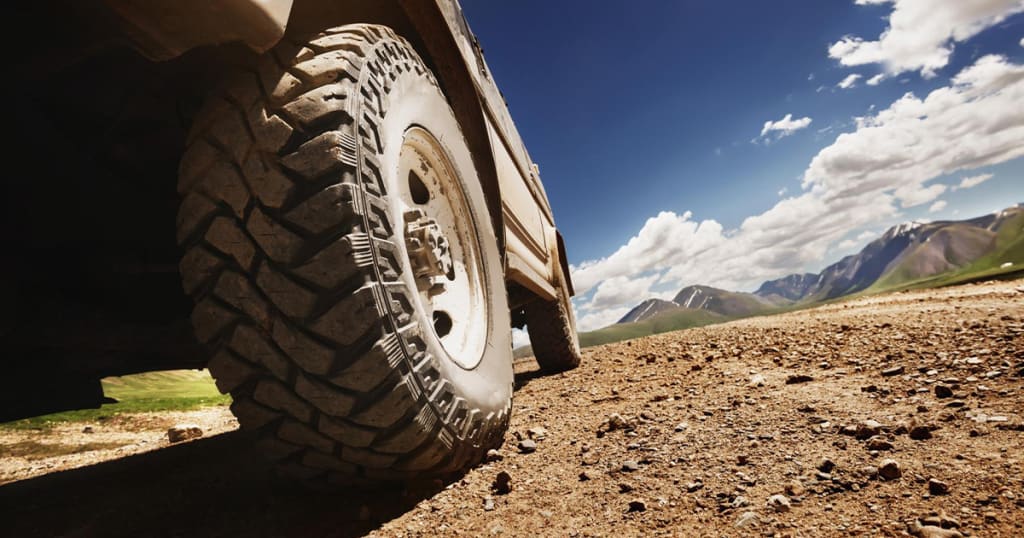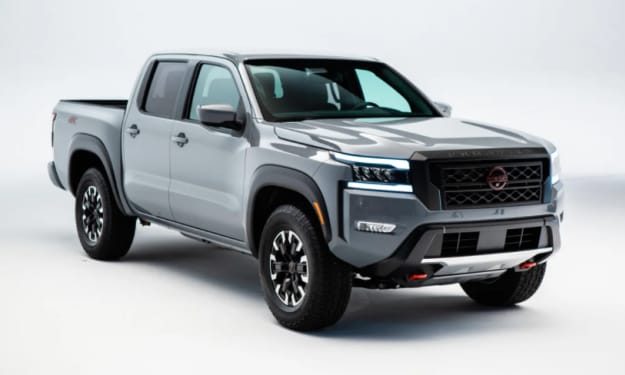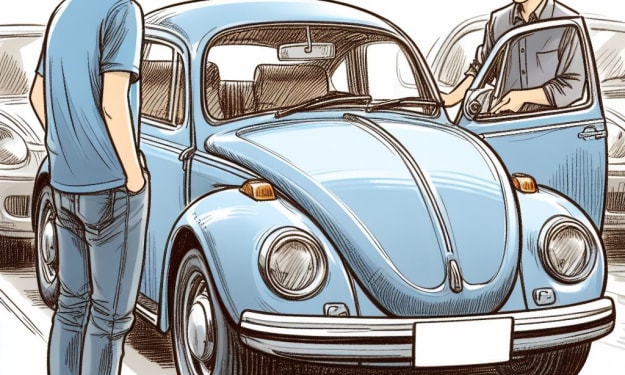Tips On How To Make Your Off-Road Tires Last Longer
Off-road tires are more prone to harmful elements that can cause wear and tear over time. Find out how to take care of your off-road tires to make them last longer.

Tires are essential parts of a vehicle that require replacement at some point. Tire wear and tear have always been a primary concern for car owners. It is undeniable that we all want our products to last longer to ensure that they're money well spent. However, not all tires are made the same. There are plenty of types of tires with different maintenance and preservation methods to extend their life span.
Off-road tires meant to traverse challenging terrains demand more attention and special care to prolong their tread life. These tires are made rugged compared to most tires that are used for passenger cars. These tires are highly efficient when off-roading and can endure beating from terrain elements such as rocks, debris, and dirt. However, these elements can cause wear and tear little by little to off-road tires when not properly and regularly maintained. To prevent damage and get the most out of your tires, here are some essential tips to follow.
1. Purchase The Right Off-Road Tires
When buying off-road tires, it is important to determine the type, intended use, potential modifications, and even driving style. Selecting the right tire ensures that you'll get the most life out of them.
Off-road tires offer a wide array of selection with different kinds and functions for all types of terrain. Off-road tires include all-terrain tires(A/T tires), mud tires(M/T tires), sand tires, and winter tires. Due to this, it isn't easy to choose off-road tires for first-time buyers. Good thing, the aftermarket offers wheel and tire packages that are off-road ready for rigs with minimal modifications.
For starters, you need to identify which tires you need suitable for the kind of off-roading you will do. It is important to match the tires with the terrain you will most frequently drive on. You have to decide if you're getting all-terrain tires like Toyo tires that you can use for both off-road and highways or dedicated mud tires that can take you on more extreme kinds of off-roading. The next thing to look for are the specifications such as the size, tread pattern, load range ratings, and other features. Proper tires guarantee effectiveness on the trail and preserve durability.
2. Apply Proper Tire Pressure
The right amount of air in the tires is significant in tire longevity. Tires during off-roading require reduced air pressure to fare better on the trails. Reduced tire pressure increases traction that helps you move forward on uneven surfaces and climb steep inclines easier.
It is common for off-road tires to get exposed to terrain elements like loose gravel, rocks, dirt, and other debris. These elements constantly slide under the tires, causing wear little by little that can damage the tire in the long run. Reducing the air pressure lessens these slips as the tires can mold themselves depending on the surface they roll over, absorbing rough edges. This will help the tread block intact, which prolongs its life span. When tires are at full pressure, they are more likely to lose their tread as they can't adapt well to the uneven surfaces while maintaining their round shape. Be sure to inflate back the tires when driving on pavement or hard surfaces to prevent damage to the sidewalls.
3. Keep Up With Tire Rotation, Balance, And Alignment
Regularly rotating your tires is necessary to extend the life of your tires. Tires wear differently for front-, rear-, and all-wheel-drive. These drivetrains utilize specific wheels when steering, accelerating, and braking that causes quick and uneven tire wear. It is highly recommended to rotate tires for every 3,000 to 5,000 miles to balance the wear, but this will depend on the frequency of off-roading and driving conditions. Identify the tires if they're directional or non-directional to determine the rotation method.
Maintaining proper tire balance and wheel alignment will maximize the life span of your tires as well. Unbalanced tires cause uneven weight distribution of the vehicle leading to excessive tire wear. Tire wear happens more often due to the stress of the tire supporting the excess distributed weight. Once you've felt vibration on steering wheels, car seats, or floorboards, your vehicle needs tire balancing. It is easy to identify which tires between the front and rear need balancing by finding where the vibration or shaking can be felt.
A wheel alignment adjusts the angle of the tires so that they won't pull to one side of the road and is essential in keeping the vehicle driving straight. Tire alignment gets faulty while driving on extreme terrains. Tire rotation, balancing, and alignment are universal tire maintenance, but it becomes frequent given the nature and road conditions of the off-roading.
4. Pay Attention To Your Shocks
Shock absorbers absorb the impact that your tires are subject to when off-roading. They control the rebound and excess movement of the springs and suspension to ensure a smooth ride. It stabilizes vehicle movement by keeping your tires in contact with the ground at all times.
When shock absorbers are worn out, it causes the tire to bounce, creating pressure to specific points of the tires leading to tire cupping. Cupped tires can be seen on tire treads with unevenly worn out and scooped up patches. You can feel these patches by running your hand across the tread. These patches or spots hinder consistent tire contact on the ground, increasing the risk of losing traction and vehicle control. It is unpleasant to drive with cupped tires, so ensure that your shocks work correctly.
5. Be Aware Of The Road Hazards
Off-roading takes planning and preparation that includes familiarity with the trail. Most risks in off-roading are preventable, such as rollovers, crashes, and getting stuck. Scout the trail for potential hazards that can quickly wear out your tires or puncture them completely. Some terrain elements can be too much for an off-road tire to handle. Suppose you can spot one, better to avoid it immediately. If you want to have worry-free off-roading, try installing heavy-duty off-road tires like the Extreme Country Mickey Thompson tires. This tire has high-strength sidewalls that can't be penetrated easily by debris and sediments.
6. Inspect Your Tires For Damage
The key to preserving the tread and life of an off-road tire is to inspect it for damage right after you finish conquering a terrain. By doing so, you can immediately see if there's a problem with your tires after taking a beating off-road and mend it on the spot. You can also relieve your tires from elements that catch on the tires' tread, like gravel and mud. Wash out the dirt and mud as these can get abrasive and rough when dried up.
7. Keep Your Tires Clean
Tires are usually the dirtiest part after off-roading. Keeping your tires clean makes them last longer and assures that they perform at their best. Wash your tire by rinsing it with a hose or pressure washer and scrubbing it with a proper cleaning agent. This will help to eliminate dirt buildup on your tires. Keeping the tire wet while cleaning prevents possible scratches from loose grimes or any sediments. You can apply rubber conditioners, antiozonants, and UV absorbers to maintain the flexibility of the tires. Make sure that you'll be using the right cleaner to avoid cracking and rubber breakdown.
8. Store The Tires Properly
Proper storage of your off-road tires can help extend their lifespan. This step is necessary if you're occasionally off-roading and have your rig sit in your garage for quite some time. Off-road tires are susceptible to dry rotting brought by oxidation of the rubber compound. Tires age faster and gain cracks when exposed to heat and UV rays from sunlight for an extended period.
Leaving your off-road tires in the garage or inside a shed can slow down oxidation. However, garages and sheds undergo fluctuations in temperature and humidity depending on the season and weather conditions. You have to keep this in mind to adjust the place into a cool and dry environment when necessary. For the best result, try to use tire covers that you can pull off anytime you need to use your rig again.
You can also uninstall the off-road tires if you're not going to use them for a long time. Loose off-road tires and spare tires can be stored individually in an airtight bag to slow oxidation and prevent the oil evaporation of the rubber compounds. These bags can also keep dust away from building up on your tires.
Taking care of your off-road tires can help you maximize their mileage. Well-maintained tires provide more chances of doing and enjoying off-roading over and over. They also ensure your vehicle's safety while off-roading, eliminating the potential risk of accidents caused by loss of traction and vehicle control. Making your off-road tires last longer can also help you save more money from buying new tires frequently.
About the Creator
Oliver Bennet
My interest in automotive specifically for trucks and other 4x4 started as a hobby but eventually became one of my careers. I've been writing automotive-related content for 4WheelOnline since 2017.





Comments
There are no comments for this story
Be the first to respond and start the conversation.